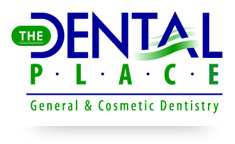04 Jun Is the Dental Implant Prone to Cavities or Gum Disease?
 The dental implant procedure includes a small piece of titanium inserted into gum tissue where tooth loss has occurred. This serves as the base for a cosmetic restoration. The patient will go from tooth loss to a fully functional tooth that is so close to natural, no one will be able to tell the dental implants from biological teeth.
The dental implant procedure includes a small piece of titanium inserted into gum tissue where tooth loss has occurred. This serves as the base for a cosmetic restoration. The patient will go from tooth loss to a fully functional tooth that is so close to natural, no one will be able to tell the dental implants from biological teeth.
Implant dentistry is a process that can take about one year to complete. Tooth loss can have occurred from trauma, decay or infection, but the cause should not impact the result.
The implant process is initiated by surgically embedding a titanium post into the gum tissue where one or more teeth have been lost. A healing period of four to six months follows this surgery. During this time, the implant will be grafting to bone tissue. The beauty of titanium is that extensive research has proven this metal has unique properties that not only promote metal and bone to merge, but also encourages bone growth in the area of tooth loss.
Once healed, the process is completed by permanently cementing a final restoration that has been fabricated to be a perfect match to surrounding teeth.
Since this restoration is likely made from porcelain, there is no concern about dental decay. A cavity occurs when there is a breach in the enamel of a live tooth. But since the biological tooth is being replaced with porcelain, concern for dental decay is eliminated in the implanted tooth.
However, gum disease remains a factor. Throughout the implant process, consideration must be given to the condition of gum tissue. It is critical that gum tissue remain free from bacteria, not only for overall dental health, but to guarantee that the implant process does not fail.
Porcelain provides an ideal material for the final restoration as gum tissue responds well to porcelain. The critical point for the patient is the need for a daily hygiene regimen that includes brushing and flossing. If the patient neglects these daily steps, the concern for gum disease will exist, especially if periodontal disease has been a previous factor.
Personal dental hygiene is critically important, but a professional cleaning every six months along with an exam by your dentist is the best protection available to maintain outstanding dental health for your dental implants as well as the surrounding natural teeth.
Learn more about your dental implant options by calling our team at 972-264-5795 today.

